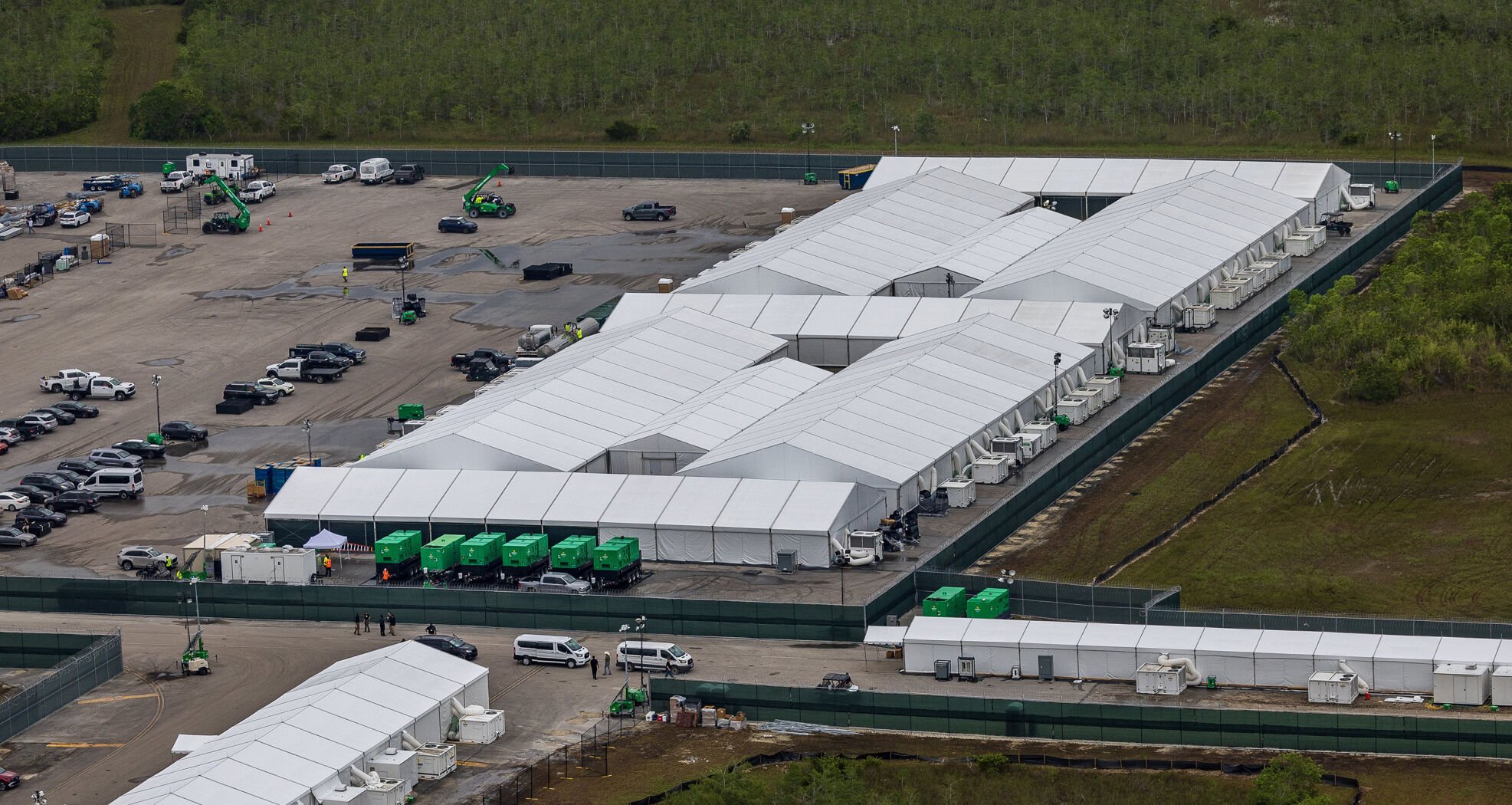Internal records depict a makeshift immigration facility known as “Alligator Alcatraz” as an instrument of “psychological warfare.” After a month there, detainee Daniel Ortiz Piñeda had to decide: keep fighting for asylum or walk away to end his confinement.
‘Psychological warfare’: Internal data shows true nature of Alligator Alcatraz

Key Takeaways:
- Internal data labels tactics at Alligator Alcatraz as “psychological warfare.”
- The site operates as a makeshift immigration detention camp.
- Detainee Daniel Ortiz Piñeda faced a choice between asylum and release.
- Advocates say the camp’s conditions can pressure migrants to give up legal claims.
- The findings fuel broader debates over U.S. immigration detention practices.
The Camp and the Charge of “Psychological Warfare”
A trove of internal data reviewed by reporters casts a harsh light on Alligator Alcatraz, a makeshift immigration detention camp referenced in official files. One phrase stands out in the documents—“psychological warfare”—suggesting that the camp’s very design may be intended to wear down the men and women confined within its perimeter.
A Detainee’s Dilemma
Daniel Ortiz Piñeda learned that reality quickly. According to the records, one month after arriving at the facility he “faced a stark choice: continue his legal fight for asylum or give it up to end his extended stay at the makeshift immigration detention camp.” His predicament encapsulates the pressure many detainees describe—freedom offered at the price of abandoning a legitimate claim.
What the Internal Data Reveals
The same data, while not publicly released in full, outlines conditions that critics argue push migrants toward surrender. Though the files stop short of detailing every tactic, the recurring phrase “psychological warfare” underscores the severity of the allegations and raises questions about official intent.
Pressure on Asylum Claims
Legal advocates contend that such pressures can undermine due-process rights. If time itself becomes a punitive tool, the decision to pursue asylum—already daunting—can feel impossible. Ortiz Piñeda’s story, echoed in the documents, illustrates how prolonged confinement may end legal battles before they begin.
A Flashpoint in the Immigration Debate
Alligator Alcatraz now occupies a symbolic place in the national conversation over detention policy. Supporters of tougher measures see the facility as a temporary solution to strained resources. Critics argue that the internal data lays bare a system willing to trade human rights for expediency.
Closing Questions
Whether labeled a necessary deterrent or an exercise in psychological coercion, the camp’s impact is undeniable for those inside its walls. As the debate intensifies, Daniel Ortiz Piñeda’s choice—freedom or the pursuit of justice—remains a powerful reminder of what is at stake for thousands seeking refuge in the United States.











